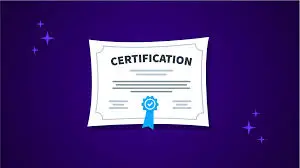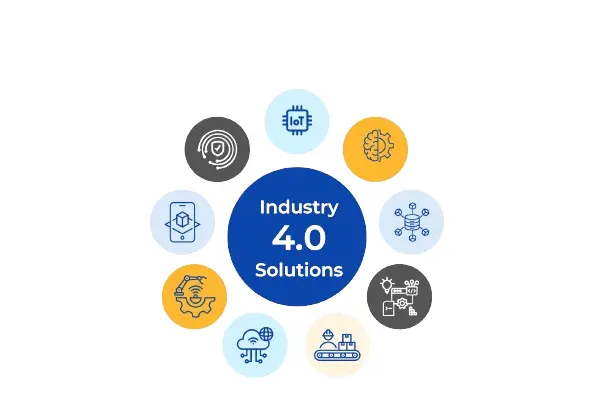Course Overview
This comprehensive training course offered by IRES is designed to prepare participants for effective emergency response and crisis management within manufacturing environments. The course covers strategies for managing emergencies, coordinating responses, and ensuring business continuity during and after a crisis.
Duration
10 Days
Target Audience
- Emergency response teams
- Safety managers
- Crisis management coordinators
- Operations managers
- Facility managers
Organizational Impact
- Improved preparedness for handling emergencies and crises.
- Enhanced coordination and response capabilities during critical situations.
- Increased ability to maintain business continuity and minimize disruptions.
Personal Impact
- Mastery of emergency response and crisis management strategies.
- Improved ability to lead and coordinate emergency response efforts.
- Enhanced skills in developing and implementing crisis management plans.
Course Level:
Course Objectives
- Understand emergency response and crisis management principles.
- Learn techniques for developing and implementing response plans.
- Develop skills in coordinating and managing crisis situations.
- Apply emergency response strategies to manufacturing environments.
- Improve overall preparedness and resilience in the face of crises.
Course Outline
Module 1: Introduction to Emergency Response and Crisis Management
- Overview of emergency response and crisis management principles.
- Understanding roles and responsibilities during a crisis.
- Case Study/Practical: Analyzing emergency response plans for a manufacturing facility.
Module 2: Developing Emergency Response Plans
- Techniques for creating comprehensive emergency response plans.
- Tools for assessing risks and planning for various scenarios.
- Case Study/Practical: Developing an emergency response plan for a specific crisis scenario.
Module 3: Crisis Communication and Coordination
- Techniques for effective communication and coordination during a crisis.
- Methods for managing internal and external communications.
- Case Study/Practical: Creating a crisis communication strategy.
Module 4: Response Team Training and Exercises
- Techniques for training response teams and conducting drills.
- Tools for evaluating team performance and readiness.
- Case Study/Practical: Conducting a response team exercise.
Module 5: Business Continuity and Recovery Planning
- Techniques for developing business continuity and recovery plans.
- Methods for ensuring operations resume effectively after a crisis.
- Case Study/Practical: Developing a business continuity plan for a manufacturing operation.
Module 6: Handling Specific Types of Emergencies
- Techniques for managing different types of emergencies (e.g., fire, chemical spill).
- Tools for preparing for and responding to specific scenarios.
- Case Study/Practical: Developing response strategies for specific emergency scenarios.
Module 7: Evaluating and Improving Response Plans
- Techniques for evaluating the effectiveness of response plans.
- Methods for implementing improvements based on evaluations.
- Case Study/Practical: Reviewing and improving an existing emergency response plan.
Module 8: Legal and Regulatory Considerations
- Overview of legal and regulatory requirements for emergency response.
- Techniques for ensuring compliance with legal obligations.
- Case Study/Practical: Analyzing legal considerations in emergency response planning.
Module 9: Psychological and Support Considerations
- Techniques for addressing psychological impacts and providing support during crises.
- Tools for managing stress and trauma in response teams and affected individuals.
- Case Study/Practical: Developing support strategies for crisis situations.
Module 10: Post-Crisis Review and Lessons Learned
- Techniques for conducting post-crisis reviews and capturing lessons learned.
- Methods for applying lessons learned to future preparedness efforts.
- Case Study/Practical: Conducting a post-crisis review and developing an improvement plan.
Related Courses
Course Administration Details:
METHODOLOGY
The instructor-led trainings are delivered using a blended learning approach and comprise presentations, guided sessions of practical exercise, web-based tutorials, and group work. Our facilitators are seasoned industry experts with years of experience, working as professionals and trainers in these fields. All facilitation and course materials will be offered in English. The participants should be reasonably proficient in English.
ACCREDITATION
Upon successful completion of this training, participants will be issued an Indepth Research Institute (IRES) certificate certified by the National Industrial Training Authority (NITA).
TRAINING VENUE
The training will be held at IRES Training Centre. The course fee covers the course tuition, training materials, two break refreshments, and lunch. All participants will additionally cater to their travel expenses, visa application, insurance, and other personal expenses.
ACCOMMODATION AND AIRPORT PICKUP
Accommodation and airport pickup are arranged upon request. For reservations contact the Training Officer.
- Email: [email protected]
- Phone: +254715 077 817
TAILOR-MADE
This training can also be customized to suit the needs of your institution upon request. You can have it delivered in our IRES Training Centre or at a convenient location. For further inquiries, please contact us on:
- Email: [email protected]
- Phone: +254715 077 817
PAYMENT
Payment should be transferred to the IRES account through a bank on or before the start of the course. Send proof of payment to [email protected]
Click here to register for this course.
Register NowCustomized Schedule is available for all courses irrespective of dates on the Calendar. Please get in touch with us for details.
Do you need more information on our courses? Talk to us.










